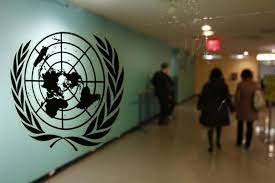The United Nations Human Rights Council, consisting of 47 members, approved a resolution on religious hatred after the Holy Quran was burned in Sweden. Pakistan supported the resolution.
The resolution faced opposition from major Western powers, including the United States, European Union, and the United Kingdom. They argued that it contradicted their stance on human rights and freedom of expression.

Pakistan introduced the resolution titled “countering religious hatred constituting incitement to discrimination, hostility or violence” in response to the burning of the holy book in Sweden. This incident caused diplomatic tensions across the Muslim world.
A total of 28 countries, including China, India, South Africa, and Ukraine, voted in favor of the resolution, while 12 countries voted against it, and seven countries abstained.
Apart from the UK and the US, countries such as Belgium, Costa Rica, Czechia, Finland, France, Germany, Lithuania, Luxembourg, Monte Negro, and Romania voted against the resolution.
Pakistan’s resolution condemns all forms of religious hatred, including acts of desecration of the Holy Quran, and emphasizes the need to hold those responsible accountable.
The resolution calls on states to enact laws that address, prevent, and prosecute acts and advocacy of religious hatred constituting incitement to discrimination, hostility, or violence.
It also requests the UN rights chief, Volker Turk, to assess the gaps in countries’ laws regarding the burning of the Quran.
Foreign Minister Bilawal Bhutto-Zardari, in a video address to the council, urged the world to unite against hatred, discrimination, and intolerance while promoting mutual respect, understanding, and tolerance.
Bilawal stated that the deliberate desecration of the Holy Quran had been allowed without consequences under government approval.
He regarded the desecration of the Holy Quran as an attack on the Muslim faith and supported the call for prevention and accountability mentioned in the draft resolution.
The minister stressed the need to differentiate between hate speech and free speech, recognizing the importance of both while advocating for their separation.
Bilawal stated that no Muslim country permits the desecration of holy texts from other religions, emphasizing that such an act is unimaginable to any Muslim.
On June 28, in Stockholm, Salwan Momika, a 37-year-old who had sought refuge in Sweden from Iraq, stomped on the Muslim holy book and set several pages on fire.
This incident took place during the religious festival of Eid ul Adha, observed by Muslims worldwide.
The Swedish government condemned the Quran burning as “Islamophobic” but acknowledged that Sweden upholds constitutional protections for freedom of assembly, expression, and demonstration.






